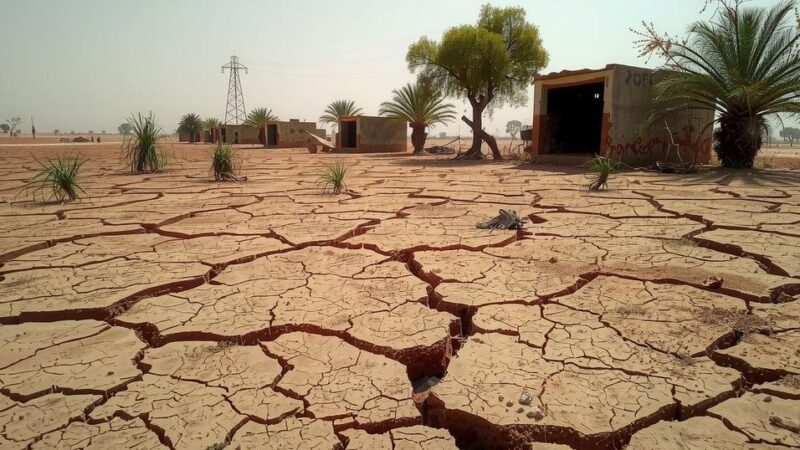The European Union is convening a donor conference in Brussels to support Syria’s transition after the ousting of President Bashar Assad. For the first time, Syria will be represented, and the event aims to gather aid for reconstruction amid severe sanctions and internal challenges. The interim government is striving for legitimacy while addressing economic needs and stability, amid ongoing violence and skepticism surrounding new leadership.
The European Union is hosting a crucial donor conference in Brussels aimed at supporting Syria’s transition following the removal of President Bashar Assad in December. This marks the first time Syria will participate in the conference, represented by Foreign Minister Asaad Hassan al-Shibani. The event is intended to capitalize on the recent political shifts in Syria and gather international support for rebuilding efforts.
Syria’s interim leadership is tasked with consolidating authority over a territory fragmented by prolonged civil conflict and steering economic recovery. The United Nations previously estimated the financial requirements for reconstruction to be at least $250 billion, with some experts suggesting it could escalate to $400 billion. However, the implementation of severe Western sanctions has complicated recovery prospects significantly.
The new Syrian administration seeks to establish legitimacy through this Brussels conference, aiming to have sanctions alleviated while simultaneously securing immediate humanitarian assistance. Nonetheless, the EU faces dilemmas in its approach, particularly in light of recent violence involving factions loyal to Assad and retaliation against minorities.
In a statement, the EU emphasized its commitment to Syria’s sovereignty, advocating for a peaceful transition without foreign interference. Separate discussions among EU foreign ministers will address Syria’s situation while the bloc cautiously adjusts certain sanctions, ensuring they remain vigilant regarding the new government’s actions.
Syria’s interim rulers are encountering authority challenges, especially after the rise of the Islamist faction Hayat Tahrir al-Sham (HTS). Ahmad al-Sharaa, a former HTS leader, is now interim president, upholding an Islamist constitution for a five-year transitional period. This shift has raised concerns among religious and ethnic minorities regarding governance under the new leadership.
The potential for renewed sanctions looms if Western stakeholders are dissatisfied with the transitional developments. Meanwhile, economic hardship continues to plague Syria; residents face chronic electricity shortages, unreliable water supplies, and extreme unemployment rates, as over 80% of the population is without stable work.
A significant displacement crisis exacerbates the situation, with millions of Syrians either internally displaced or living as refugees across the region, particularly in Turkey, Lebanon, and Jordan. The U.N. reports that although approximately 302,000 refugees have returned since Assad’s ousting, the humanitarian situation remains dire.
Nevertheless, U.N. humanitarian chief Tom Fletcher expressed optimism regarding operational dynamics under the new regime, citing improved access compared to the Assad era. The conference’s objective is to secure necessary aid while addressing Syria’s urgent economic needs, which hinge on achieving stability and expanding essential services such as infrastructure, health, and education. Jobs and employment programs are imperative to facilitate livelihoods for the Syrian populace.
The donor conference hosted by the EU represents a significant opportunity for Syria to solicit international support as it navigates a transitional period following President Bashar Assad’s departure. With an urgent need for reconstruction and economic stability, the interim government aims to validate its legitimacy, despite facing significant challenges from within Syria and lingering sanctions. The EU’s cautious approach indicates a balancing act as it seeks to support humanitarian efforts while maintaining a vigilant stance on the new authorities’ governance methods. The outcome of this conference could shape Syria’s path towards recovery, contingent on the establishment of peace and effective transitional governance.
Original Source: www.usnews.com






